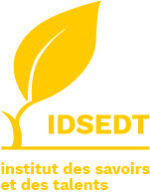Programme Odyssée: point d'étape peu éclairant
Rédigé par Thierry Meurgues le . Publié dans Emploi Métiers.
[French version here/English version below]
Présenté initialement lors du Comité de Groupe Européen du 1er mars 2017, la Direction du Groupe Orange nous communique, lors de cette session du 29 novembre 2017 de l'instance européenne de dialogue social à Bruxelles, un point d'étape sur l'avancement de ce projet, ainsi qu'elle s'était engagée à le faire précédemment.
L'axe clef de ce programme est articulé autour de la nécessité, pour l'entité Orange Labs Network, de disposer de "compétences adaptées" en France et en Europe afin de répondre aux enjeux stratégiques du Groupe, notamment aux transformations téchnologiques en cours dans le domaine du réseau. En termes d'implantation géographique, les équipes sont actuellement réparties de la manière suivante:
- Pologne: 34
- Royaume-Uni: 26
- Belgique: 10
- Espagne: 5
- Roumanie: 5
S'agissant de la Roumanie et de la Pologne, la Direction communique autour de la déclinaison d'un programme de formation et de gestion des compétences lié au portefeuille d'activités, avec respectivement un total moyen de 4.8 jours et 2.8 jours de formation par salarié et par an. Si la présence d'Orange Labs Network constitue un véritable atout pour l'entité elle-même ainsi que pour les pays dans lesquels elle est présente, via notamment une diversité d'approches et de parcours, le développement des compétences à l'étranger peut être perçu comme plus compliqué, notamment du fait de la variété des programmes uniquement disponibles en français ou sur des sites francophones. Consciente de ce frein potentiel, la Direction indique s'engager à proposer les programmes de formation nécessaires, en renfort de ceux proposés localement.
Les objectifs et résultats du programme Odyssée demeurent inchangés par rapport aux éléments présentés précédemment, tant en Comité de Groupe Européen qu'au Comité d'Etablissement de l'entité IMTW (Innovation, Marketing, Technologie & Wholesale). Il s'agit d'assurer l'évolution des organisations, des modes de fonctionnement et des compétences du Groupe afin de faire face aux diverses transformations technologiques, notamment celles relevant de la virtualisation des fonctions réseau, de l'architecture et de l'intégration de bout-en-bout, du Big Data et de la valorisation des données réseau, de la convergence des infrastructures IT et réseaux, et enfin de la sécurité. Les résultats attendus se déclinent en adaptations des organisations, des missions, des process et méthodes de fonctionnement, ainsi qu'en amélioration de la gouvernance, tout en assurant la formation et le développement de nouvelles compétences.
En matière de moyens dédiés à la formation, la Direction articule l'essentiel de son action autour de l'élaboration de plans de développement personnel, dont le manager fonctionnel est le premier architecte, particulièrement dans l'exercice de son rôle en matière de conception du plan de développement personnel de chaque salarié(e) de son équipe. A l'échelle du Groupe, la Direction met en avant Orange Innovation School, l'école de formation IMTW, ainsi que la communauté Orange Learning sur le réseau social d'entreprise Plazza. Quant à l'entité Orange Labs Network, elle propose une sélection de formations et d'informations disponibles à court terme en e-learning et en anglais, ainsi qu'un calendrier de sessions de formation pour 2018. Dans le domaine du partage des meilleures pratiques, la Direction met également l'accent sur l'apport essentiel des communautés d'experts qui partagent leur expérience pour accompagner la montée en compétences dans les domaines évoqués plus haut.
Sans remettre en cause la nécessité pour le Groupe de s'adapter constamment aux évolutions technologiques, les élus du Comité de Groupe Européen expriment leur surprise face à la découverte en séance de la création d'Orange Labs Services Pologne, dont ils comprennent qu'elle est liée à la volonté de regrouper l'ensemble des salariés(es) à profil technique au sein d'une entité unique, mais sans qu'aucune information ne leur ait été communiquée sur le processus de recrutement.
Face à l'abondance de moyens en "e-learning" présentés par la Direction, la CFE-CGC s'interroge en particulier sur l'efficacité de telles méthodes d'apprentissage, sur le retour d'expérience des salariés(es) les ayant suivi, la Direction admettant en séance qu'aucun outil spécifique afin d'en mesurer l'efficacité n'a été développé à ce stade...
[English version]
Initially presented at the European Works Council meeting on March 1st, 2017, the Orange Group Management informs us, during this session of November 29th, 2017 in Brussels, of a waypoint about the progress of this project, as they had promised to do before.
The key focus of this program is articulated around the need, for the Orange Labs Network entity, to have "adapted skills" in France and in Europe in order to respond to the Group's strategic challenges, particularly the on going technological transformations in the domain of network. In terms of geographic location, the teams are currently distributed as follows:
- Poland: 34
- United-Kingdom: 26
- Belgium: 10
- Spain: 5
- Romania: 5
For Romania and Poland, the Group Management communicates around the implementation of a training and skills management program related to the portfolio of activities, with an average total of 4.8 days and 2.8 days of training per employee and per year. If the presence of Orange Labs Network is a real asset for the entity itself as well as for the countries in which it is present, via a variety of approaches and pathways, the development of skills abroad can to be perceived as more complicated, particularly because of the variety of programs available only in French or on French-language sites. Conscious of this potential brake, the Management indicates their willing to offer the necessary training programs, in reinforcement of those proposed locally.
The goals and results of the Odyssey program remain unchanged compared to the elements presented previously, both in the European Works Council and the Establishment Committee of IMTW (Innovation, Marketing, Technology & Wholesale). The aim is to ensure the evolution of the Group's organizations, operating methods and skills in order to cope with various technological transformations, particularly those related to the virtualization of network functions, architecture and end-to-end integration, big data and network data valuation, convergence of IT and network infrastructures, and finally security. The expected results are in adaptations of organizations, missions, processes and operating methods, as well as improvement of governance, while ensuring the training and development of new skills.
In terms of resources devoted to training, the Management focuses its action around personal development plans, whose functional manager is the first architect, particularly in the exercise of its role in designing the personal development plan of each employee on his team. At Group level, the Board highlights Orange Innovation School, the IMTW training school, as well as the Orange Learning community on the Plazza corporate social network. As for the Orange Labs Network entity, it offers a selection of short-term training and information available in e-learning and English, as well as a calendar of training sessions for 2018. In the field of sharing the best practices, the Management also emphasizes the essential contribution of the communities of experts who share their experience to support the rise of skills in the areas mentioned above.
Without questioning the need for the Group to constantly adapt to technological developments, the elected representatives of the European Works Council express their surprise at the discovery in session of the creation of Orange Labs Services Poland, which they understand is linked to the desire to bring together all employees with a technical profile within a single entity, but without any information being communicated to them on the recruitment process.
Faced with the abundance of resources in "e-learning" presented by the Management, the CFE-CGC questions in particular the effectiveness of such learning methods, on the feedback of employees using them, the Management admitting in session that no specific tool to measure its effectiveness has been developed at this stage ...
Conditions de Travail et Santé Europe et International Formation Professionnelle Comité Groupe Europe TGI









